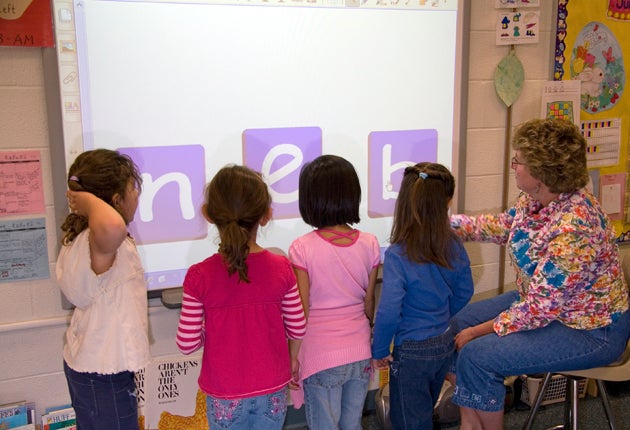Summer children do worse in exams
Controversial report says they are also more likely to have special needs

Children born in the summer are more likely to be referred to a psychiatrist or assessed as having special needs, a study suggests.
The report, by the widely respected National Foundation for Educational Research, says this could be as a result of increased stress as they struggle to keep up with their older fellow-pupils in class because of their age. Alternatively, the diagnosis could be faulty, with problems caused solely as a result of their age rather than any mental health problem or lack of ability.
The report, commissioned by the Qualifications and Curriculum Authority, the government's curriculum watchdog, also confirms they do worse in tests and exams throughout their schooling.
It calls for a radical shake-up of testing in schools so pupils are put in for them when their teachers believe they are ready for them, rather than testing every child in the class at the end of the school year as happens with national curriculum tests for 11-year-olds. The report cautions those assessing children for special needs or to refer them to a psychiatrist to take into account their age before making a decision.
A government inquiry into primary schooling, headed by former Ofsted inspector Sir Jim Rose, recommended that every child should be allowed to start school in the September after their fourth birthday, rather than wait a term or two until they are five or nearly five.
Ministers believe this could counter the effect of summer-born children doing worse in tests and exams. Research for the committee of inquiry says the summer-born effect stays with the youngster right up until A-levels.
But the government has conceded that some youngsters could start school part-time, following criticism that four is too young an age to start formal learning. "Summer-born children risk being treated as 'immature' in comparison with their older classmates," Sir Jim's report concluded.
The NFER report adds: "It is likely that the use of age-standardised tests would remove the relative age effect in academic achievement entirely."
This, it argues, has already been demonstrated in Northern Ireland. In addition, the government has changed arrangements for national curriculum tests for seven-year-olds,– to allow them to be taken when teachers believe their pupils are ready for them.
A pilot study is being conducted amongst 11-year-olds to see if the reform could be extended to that age group.
One theory has been rejected by researchers, that summer-born children are more likely to be delicate and vulnerable as a result of being exposed to winter colds earlier in their development in the womb.
The NFER has said that internationally there is no evidence for this.
Join our commenting forum
Join thought-provoking conversations, follow other Independent readers and see their replies
Comments
Bookmark popover
Removed from bookmarks